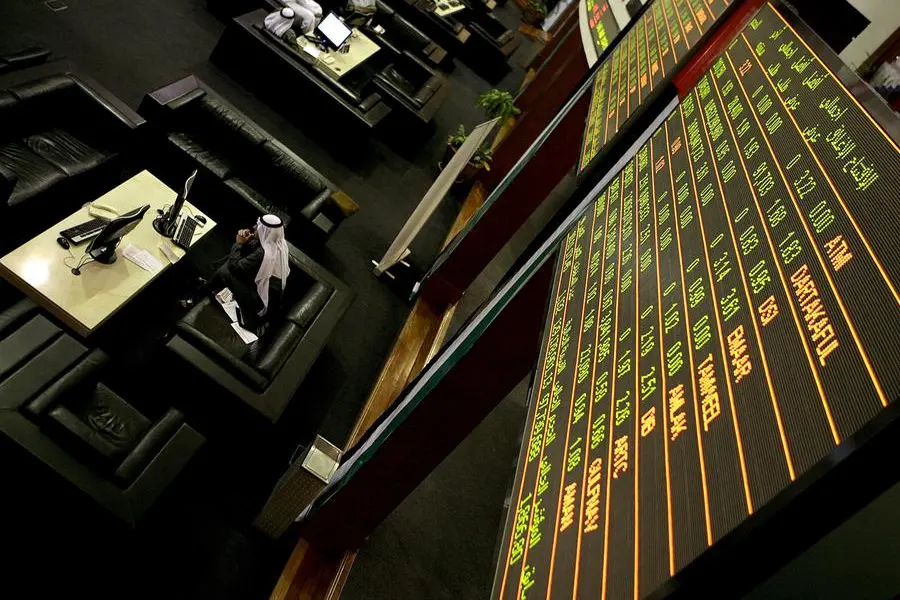PHOTO
The UAE is one of the world’s largest private school markets, and the education investment sector has significant potential thanks to its growing population and government efforts to position the country as a global hub.
Dubai alone boasts 216 private schools, according to the emirate’s Knowledge and Human Development Authority (KHDA).
At present, there are four major investors in the private education sector in Dubai, the largest being the Dubai-headquartered GEMS, one of the biggest K-12 education providers in the world, and Taaleem, which had its initial public offering (IPO) on the Dubai Financial Market (DFM) last year.
The others are Dubai-listed Amanat, which is currently focused primarily on higher education and special education needs, and Emirates REIT, a Nasdaq-Dubai listed real-estate investment trust that invests in education and the commercial office sector.
The last two years have seen acquisitions in the sector, although neither a long-rumoured IPO or the reported potential acquisition of GEMS by Abu Dhabi entities have materialised.
GEMS has also declined to comment on its current investment ambitions and future M&A or IPO plans for this article, but the other major Dubai-based education providers have spoken to Zawya about their future focus, and all have their eyes on the Saudi Arabian market.
The three companies have transacted with each other in the past: Amanat was the largest shareholder in Taaleem, but it sold its stake in 2021 to a Government of Dubai entity for a reported $95 million.
In addition, Taaleem acquired Jebel Ali School from Nasdaq-Dubai listed Emirates REIT prior to Taaleem’s DFM listing, which took place in November 2022.
Emirates REIT has “significant ambitions” to grow its exposure to the education sector, whether in Emirates REIT directly or a dedicated vehicle, according to Thierry Leleu, CEO of the REIT’s manager Equitativa.
“Going beyond the school sector,” he said, “we also believe there is a tremendous opportunity to attract internationally renowned universities to set up campuses in the UAE, which could become a regional hub for higher education.”
Leleu said Saudi Arabia is a logical market for the REIT due to the national transformation programme under the kingdom’s Vision 2030. “We would certainly look at our operating partners and assess potential opportunities to enter the Saudi market to help deliver on the 2030 vision goals,” he said.
Research during Taaleem’s IPO found that demand for premium education is unlikely to diminish in the UAE in the coming years, and the company has committed to four new greenfield schools in the country, according to CEO Alan Williamson. “I fully expect continued growth in the education sector and continued investment by both regional and international companies,” Williamson told Zawya.
Of the four new greenfield schools, he added, Dubai British School Jumeirah, next to Dubai Canal, is to launch in September 2025, while Dubai British School in the Mira community is also in development, and the remaining two are in the planning permission stages.
While the company remains committed to the UAE market, Williamson said, it is well placed for other GCC collaborations due to its strong outcomes in Arabic and Islamic teaching. Taaleem is also involved in three public–private partnership initiatives: Emirates Schools Establishment, Abu Dhabi Government’s Charter Schools and the Dubai Schools Programme, which have potential for wider GCC expansion, but, focus remains on the local education market at present, he added.
Balancing Pupils’ Needs Against Growth Targets
Taaleem is in the business of education, and as a listed company it must take care of shareholders’ interests without compromising on the various aspects required to sustain as a quality education provider.
“Taaleem has always focused on prudent financial operations. With low leverage and a lower risk profile, we have been able to expand and grow without compromising the offerings for our students even during challenging macro environments,” Williamson said.
“For example, during COVID-19, we were able to support families by being the first company to universally offer discounts in the form of fee relief. This early and proactive initiative was hugely appreciated by our community,” he added.
The quality of a school never exceeds the quality of its teachers, he said and added that Taaleem was the first and only education company to award teachers’ pay increases after the pandemic.
Fadi Habib is the head of education investments at Amanat, which has investments in Human Development Company (HDC), a Saudi-based special education and care company, as well as Middlesex University Dubai and NEMA Holding, formerly Abu Dhabi University Holding Company.
With 4,500 students, Middlesex is currently the largest university in Dubai, Habib said.
“We want to build on that in Dubai as well as potentially look at opportunities where we can expand to other countries in the region,” he told Zawya, adding, “We continue to look at potential bolt-on acquisitions in our higher education platform.”
While the GCC is a focus for expansion, particularly in Saudi Arabia, Egypt is a second market of interest, Habib said.
The company sold its interest in Taaleem in 2021, which Habib said was “a very successful case study financially and strategically”. It is now considering further opportunities in that area.
“We are looking at the right acquisition targets which will be market-leading players that we can support [and] grow into a regional champion,” he said, adding that Dubai is the largest K-12 market as a city, while Saudi will become a major market for the sector.
Another area of focus is special education and care. “We really like the special education and care sector; it’s right at the intersection of what we do. It’s quite underserved in the region, and it has very strong growth fundamentals,” he said.
“It’s a very exciting sector for us. We’ve just made an acquisition in Q4 2022, and we are really looking forward to expand the reach of the business. Today it’s a network of 22 centres and nine schools; we are looking to grow that across Saudi Arabia and the GCC.”
(Reporting by Imogen Lillywhite; editing by Seban Scaria)




















